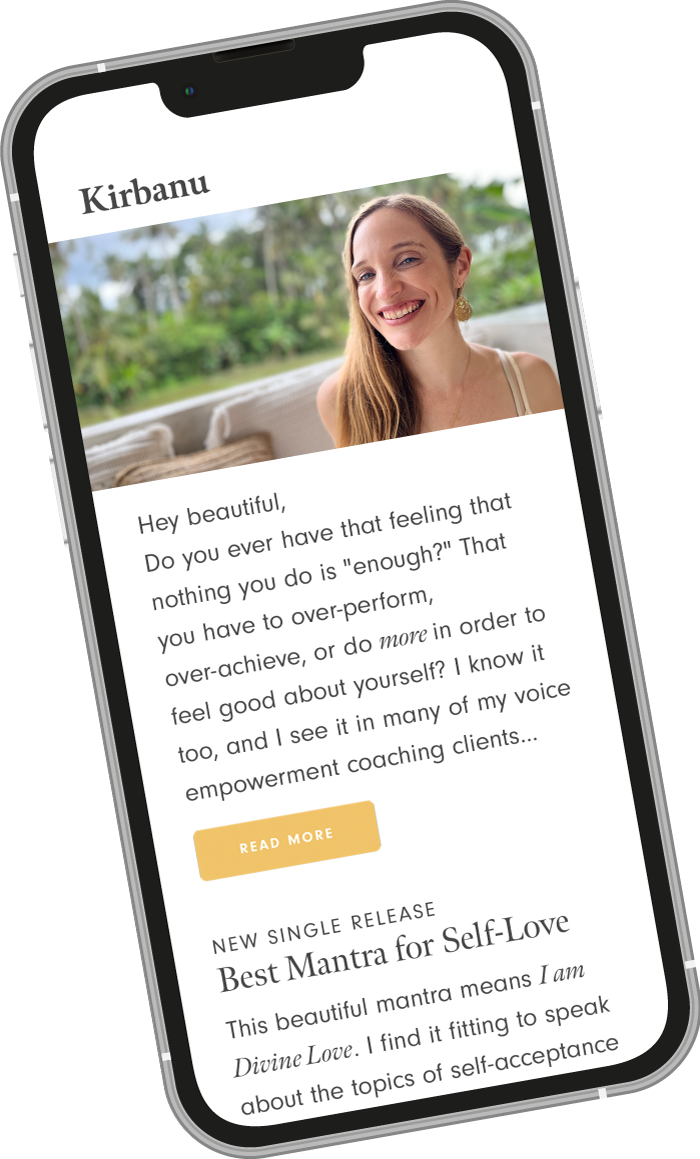A Comprehensive Guide to Self-Care and Personal Empowerment
Show Up for Yourself
In today’s busy world, it’s easy to get wrapped up in the whirlwind of daily responsibilities and forget about the most important person in your life—you. Learning to show up for yourself is an essential practice that many of us overlook, but it’s crucial for maintaining your well-being, happiness, and overall life satisfaction.
But what does it really mean to show up for yourself, and how can you start doing it more effectively? Let’s dive into the core principles and practical steps that can help you prioritize your own needs and truly take care of yourself.
What Does It Mean to Show Up for Yourself?
To Show up for yourself goes beyond mere self-care rituals; it’s about making a commitment to prioritize your own needs, emotions, and well-being in a world that constantly demands your attention elsewhere. It means putting yourself first in a way that’s healthy and necessary.
Here’s what show up for yourself entails:
Prioritizing Your Needs: This involves recognizing that your needs are matter just as everyone else’s. It’s not about being selfish; It’s like knowing you can’t serve a meal without ingredients.
Creating Space in Your Day: Finding moments in your day to focus solely on yourself is essential. This could be through activities that recharge you, like reading a book, a walk, or simply having a quiet moment to breathe.
Taking Responsibility: It’s easy to expect others to meet our needs and feel disappointed when they don’t. To Show up for yourself is realizing that you are in charge of your own happiness and well-being. Only you can do it.
5 Habits to Help You Show Up for Yourself
- Daily Reflection: Put aside a couple of minutes each day to consider your emotions, thoughts, and experiences. Whether you choose to write, meditate, or just sit in quiet contemplation, this practice helps you stay connected to yourself and identify what you need.
- Set Boundaries: Clearly define limits with others to protect your time and overall wellness. It’s essential to say no when necessary and prioritize your own needs. Setting these boundaries helps you maintain equilibrium and prevent burnout.
- Practice Gratitude: Take time each day to notice and be grateful for the positive aspects of your life, some may be small wins but this habit boosts your overall happiness by shifting your focus to what you have instead of what you lack.
- Engage in Physical Activity: Make regular exercise a part of your daily routine to support your physical and mental health. Pick activities you love, such as strolling, practicing yoga, or singing and dancing. Regular physical activity helps manage stress and lift your mood.
- Nourish Your Body: Focus on eating meals that are rich in nutrients and complete meals. Stay hydrated and pay attention to what your body is telling you. Eating well helps improve your energy, mood, and overall health.
Align & Thrive! Free Call
Learn techniques to help you break free from limiting habits, thoughts and beliefs, to navigate life with greater ease, in alignment with your goals and wishes!
Why Is It So Hard to Show Up for Yourself?
A lot of people struggle to show up for themselves because they set expectations that are just too high. We often expect too much from ourselves, trying to meet the high standards set by society, our upbringing, or even the curated perfection we see on social media. This can lead to a cycle feeling disappointed and being hard on yourself.
Setting Unrealistic Expectations
One of the main reasons we struggle to show up for ourselves is that we set the bar too high.
Here are some common pitfalls:
Overestimating Our Capacity: We often believe we can accomplish more in a day than is realistically possible. When we fail to reach these goals or expectations, we feel like we’ve let ourselves down, or failed.
Cultural Conditioning: Society often glorifies being busy and productive, which can make it difficult to prioritize rest or self-care without feeling guilty.
Comparison with Others: Social media can make us feel like we aren’t doing enough by seeing the best moments of other people, leading us to believe we should be doing more.
How to Set Realistic Expectations
Lower the Bar: Life often demands more than we feel capable of delivering. The idea of “lowering the bar” isn’t about giving up or settling for less—it’s about meeting yourself where you are and recognising that progress, no matter how small, is still progress.
Assess Your Current Capacity: Take a realistic look at your energy levels, time constraints, and emotional state. Adjust your expectations accordingly.
Simplify Tasks: Instead of trying to tackle everything at once, break tasks into smaller, manageable steps. Ask yourself, “How could this be easy?” This simple question can help you simplify your approach and reduce overwhelm.
Celebrate Small Wins: Notice and celebrate even the smallest achievements. This helps build momentum and keep you motivated.
Taking Responsibility for Your Needs
One of the most significant aspects to show up for yourself is taking full responsibility for your own needs. It’s tempting to expect others to know what we want or to fulfill our needs without us having to ask. However, this often leads to disappointment and resentment when they fail to do so.
Stop Playing the Victim
It’s easy to fall into the trap of victimhood, where we blame others for not meeting our needs or for our unhappiness.
This can manifest in various ways:
- Projecting Needs onto Others: Expecting others to intuitively know what you need is unrealistic. Clear communication is key.
- Resentment and Anger: Feeling angry or disappointed when others don’t meet your expectations can harm relationships and your own mental health.
- Avoiding Responsibility: When you rely on others to take care of your needs, you avoid the responsibility of taking care of yourself. To break free from this pattern, it’s important to ask yourself, “How do I show up for myself?” and take proactive steps to meet your own needs.
How do you Show up for yourself?
To Show up for yourself is a daily practice that involves several key components. Below are some practical steps you can take to start prioritizing yourself in your daily life.
Keep Your Promises to Yourself
One of the most powerful ways to show up for yourself is by keeping the promises you make to yourself. This builds self-trust and reinforces your commitment to your own well-being.
Set Clear Intentions: Whether it’s committing to a daily walk, drinking enough water, or going to bed early, make sure your intentions are clear and realistic.
Block Out Time: Schedule time for your commitments just as you would for a work meeting or a social event. For example, if you plan to go to the gym three times a week, make it a priority and put it in your calendar to make sure you do it.
Follow Through: Hold yourself accountable. If you promised yourself you’d go for a walk today, make sure it happens, even if it means adjusting your schedule.
Align & Thrive! Free Call
Learn techniques to help you break free from limiting habits, thoughts and beliefs, to navigate life with greater ease, in alignment with your goals and wishes!
Check Your Expectations
Regularly checking your expectations for a reality check can help prevent stress and disappointment.
Re-evaluate Your Goals: Are your goals aligned with your current life situation? If your goals are too high, make them easier.
Practice Self-Compassion: Take it easy and don’t be too rough on yourself if you don’t meet your goals. Think about how you can do better the next time.
Focus on Progress, Not Perfection: Celebrate every bit of progress, not just perfection. Leaning into a more positive view in life.
Tune In to Your Feelings
Taking time to tune into your feelings throughout the day is a crucial aspect to show up for yourself.
Daily Check-Ins: Take even a bit of time each day to ask yourself if you feel okay.
Meditation: A short meditation practice can help you connect with your inner self and gain clarity on what you need.
Listen to Your Body: Give yourself the care and love you give to other people if you are hungry, tired, or tense. Your body might need food, rest, or a break.
Nourish Your Body
Your physical health is a foundational aspect to show up for yourself. Eating well can greatly improve your health.
Hydration: Make sure that you are getting enough water daily. A simple way to track this is by keeping a large water bottle or a pot of tea nearby and refilling it as needed.
Nutrition: Pay attention to the food you’re eating. Is it nourishing and energizing you? Try adding more nutritious things to your diet as this can boost your energy and overall health.
Exercise: Regular activity is important for your body and mind. Find an exercise you like and do it regularly, whether it’s walking, yoga, or dancing.
Make Time for Joy and Play
Make Time for Joy and Play Life isn’t all work. Make time for fun and play to take care of yourself.
Schedule Fun Activities: Whether it’s a hobby you love, spending time with friends, or simply relaxing with a good book, make sure you’re scheduling time for activities that bring you joy.
Embrace Spontaneity: Plan, but also leave space for spontaneous moments. Sometimes the best moments happen when you allow yourself to go with the flow.
Celebrate Yourself: Take time to recognize and enjoy your successes, big or small. This reinforces positive behavior and helps you maintain a positive mindset.
Guilt and Shame
Guilt often comes when taking some time for yourself especially when you have plenty of responsibilities or care for others. Here’s how to address these feelings:
Reframe Self-Care: Understand that taking care of yourself isn’t selfish—it’s necessary. When you’re rested and happy, you can better care for others and handle your duties.
Practice Self-Compassion: Take it easy, you need time to recharge too. Realize that everyone deserves to take a break and enjoy little things.
Seek Support: If guilt or shame are significant barriers, consider seeking support from a therapist or coach who can help you work through these feelings.
Align & Thrive! Free Call
Learn techniques to help you break free from limiting habits, thoughts and beliefs, to navigate life with greater ease, in alignment with your goals and wishes!
Reflecting on Your Progress
As you begin to incorporate these practices into your life, take time to think about how you’re doing.. This reflection is not about judgment or self-criticism, but about understanding how you’re evolving and where you might still need support.
Celebrate Your Wins
Pause to recognize how you show up for yourself recently. Did you stick to a new habit? Did you take time to rest when you needed it? Celebrate these successes, no matter how small.
Identify Areas for Growth
Without judgment, consider where you were not able to show up for yourself as much as you’d like. This could relate to your health, connections with others, or self-improvement.
Ask yourself:
- What do I need to change to show up for myself?
- What am I avoiding?
- What fears or beliefs are stopping me or holding me back?
Plan Your Next Steps
Based on your reflections, set some clear, actionable goals for how you can continue to show up for yourself. These don’t have to be big changes; it can be the smallest one, but still makes a huge difference.
Showing up for yourself!
Why should you show up for yourself, and what does that even mean? To show up for yourself is about prioritizing your individual needs and well-being. And I know, in this busy world of ours, that isn’t always an easy thing to do! How often do you find yourself saying “yes” to everyone and everything else, but “no” to yourself?
The thing is, it’s essential to take care of yourself, and no-one else is going to do this for you. By taking care of yourself, by putting your needs first, making time for things that bring you joy, and learning to say “no,” you create a strong basis for your growth and happiness. You increase your sense of self-worth and wellbeing, and this energy radiates out from you into the world. People feel it. And they respect it.
So how can you show up for yourself?
One way is to take time throughout your day to check in and see how you’re feeling, to find out what you need, and to respond accordingly. Another way is by checking your expectations, and making sure that they’re realistic and achievable. Yet another still, is by looking after your basic nutritional needs and another is by keeping your promises with yourself. Setting healthy boundaries with yourself and with others – is a biggie as well as making time for self-care and decompression.
Remember, when you show up for yourself, you send a message to the world that you are worthy of love and respect. You radiate that energy. You also increase your joy and the way you feel in your daily life, who doesn’t want that?
So, show up for yourself, because you are sooo truly worth it!
A Lifelong Journey of Self-Care
To Show up for yourself is not a one-time event but a lifelong journey. It requires ongoing commitment, reflection, and adjustment as your life circumstances change.
By making a conscious effort to prioritize your own needs, set realistic expectations, and take responsibility for your well-being, you can create a life that is not only fulfilling but also deeply aligned with who you are.
Remember, you are worth the effort. No one else can show up for you in the way that you can. So, make the choice today to show up for yourself with love, compassion, and dedication. The journey might be tough, but trust that it will be worth it.




